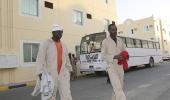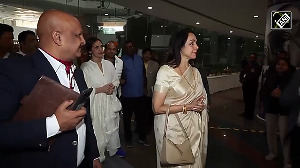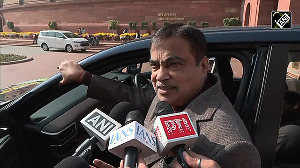Preparing turf for the World Cup, being held for the first time in the Middle East, is environmentally costly.
Qatar has also countered the risk of fungus and disease outbreaks with a maintenance regime involving chemical cocktails, grass mowers that vacuum debris and an underground system that sucks excess moisture, said a UEFA pitch consultant.
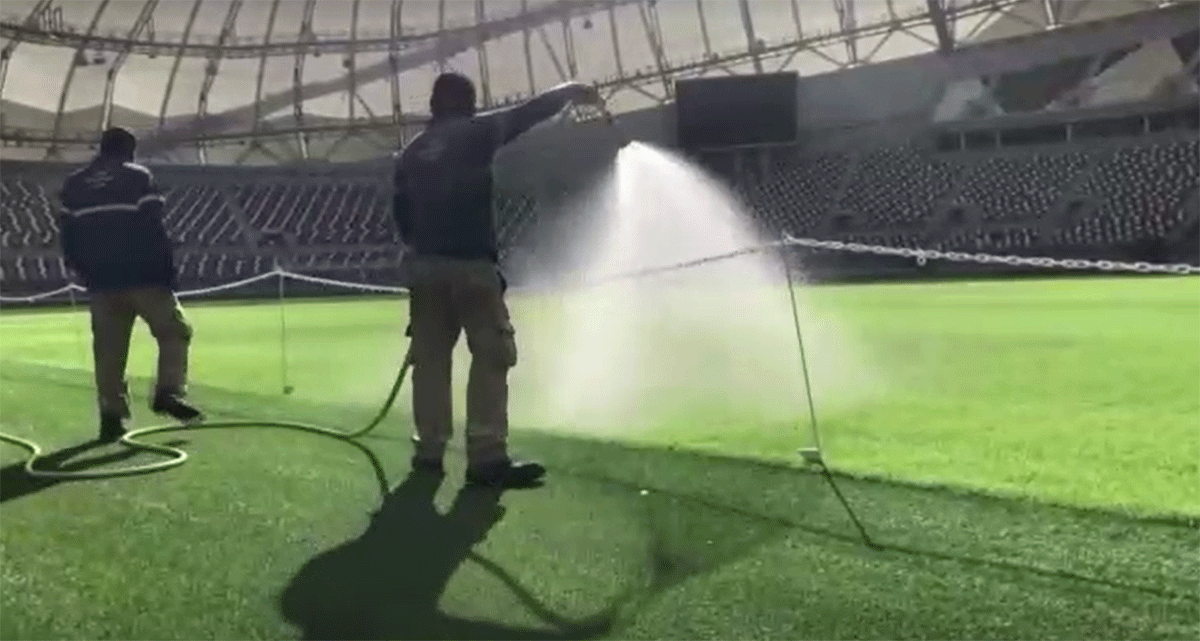
Winter will come early to soccer stadiums in baking-hot Qatar when groundskeepers blast chilled air starting in September to ensure pitch turf thrives in the desert country for the World Cup.
Mimicking winter in the Gulf state, where temperatures can swelter at 40 Celsius (104 Fahrenheit) in the fall, is just one trick experts have introduced over the last 14 years to improve turf quality and increase the number of soccer pitches.
An elite corps of groundskeepers now maintains 144 green, lush fields -- eight stadium pitches and 136 training grounds. They blast chilled air through nozzles directly at the turf, tending luxuriant patches of green dotted amid the dun or grey of Qatar's desert and concrete.
"The weather condition and the climate together with the level of performance criteria we have set for ourselves makes it extremely challenging to develop the product we need. But we succeeded," said Haitham Al Shareef, a Sudanese civil engineer who has worked on Qatar's pitches since 2007.
Preparing turf for the World Cup, being held for the first time in the Middle East, is environmentally costly.
Qatar flies in 140 tonnes of grass seed annually from the United States on climate-controlled aircraft, Al Shareef said, and pitches are watered with desalinated seawater, in an energy-intensive process burning the country's wealth of natural gas.
Each pitch requires 10,000 litres of desalinated water daily in winter and 50,000 litres in the summer, he added.
WEAR AND TEAR
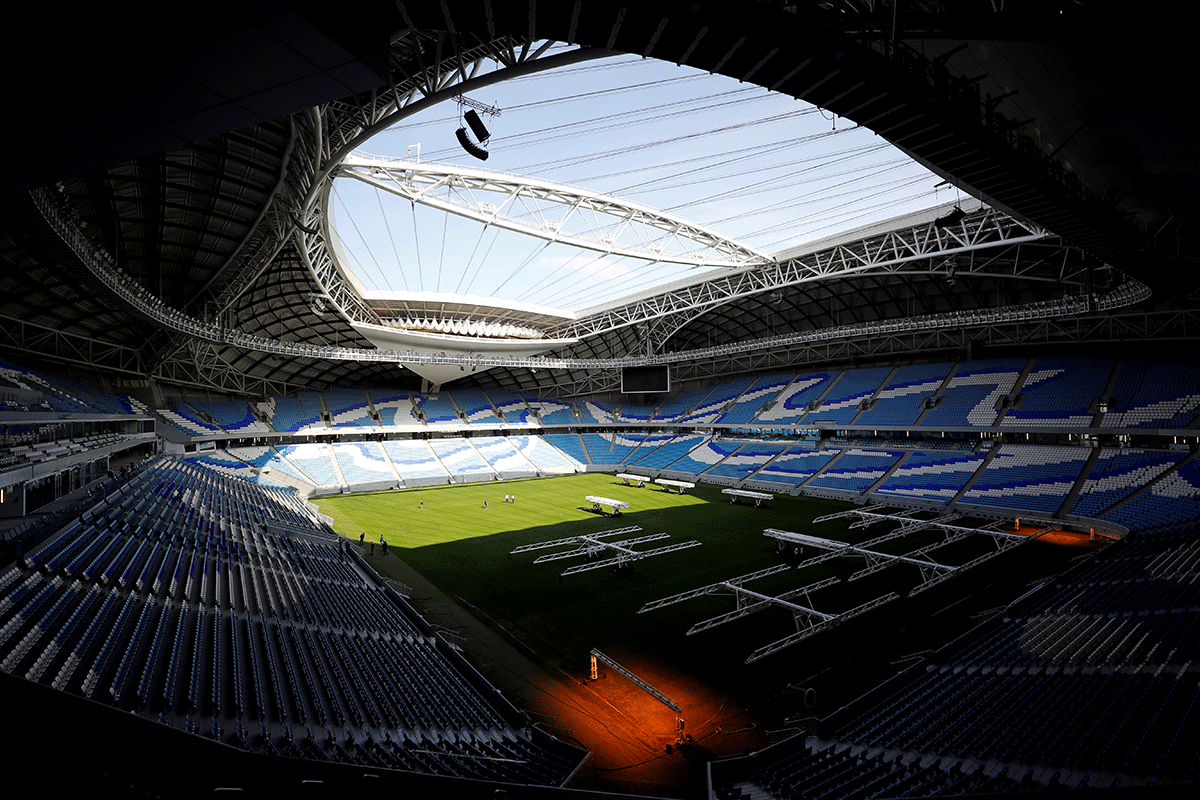
The 28-day event begins in November at perhaps the most challenging time of year for durable turf, as Qatar's weather transitions from searing summer to mild winter.
Some grass varieties turn dormant as temperatures rise and winter ryegrass takes root, making adequate growth a challenge between matches.
"When you have wear and tear, you want the grass to keep growing to recover," Al Shareef said.
"If you seed the pitch too early, you will have germination, but the winter grass will not really grow, it will actually die because it's too warm."
So groundskeepers trigger winter in September, seeding pitches with ryegrass in a practice that has over the last three years yielded durable pitches.
Qatar has also countered the risk of fungus and disease outbreaks with a maintenance regime involving chemical cocktails, grass mowers that vacuum debris and an underground system that sucks excess moisture, said a UEFA pitch consultant.
"You're one disease outbreak from failure," said consultant Dean Gilasbey, who has trained groundskeepers around the world.
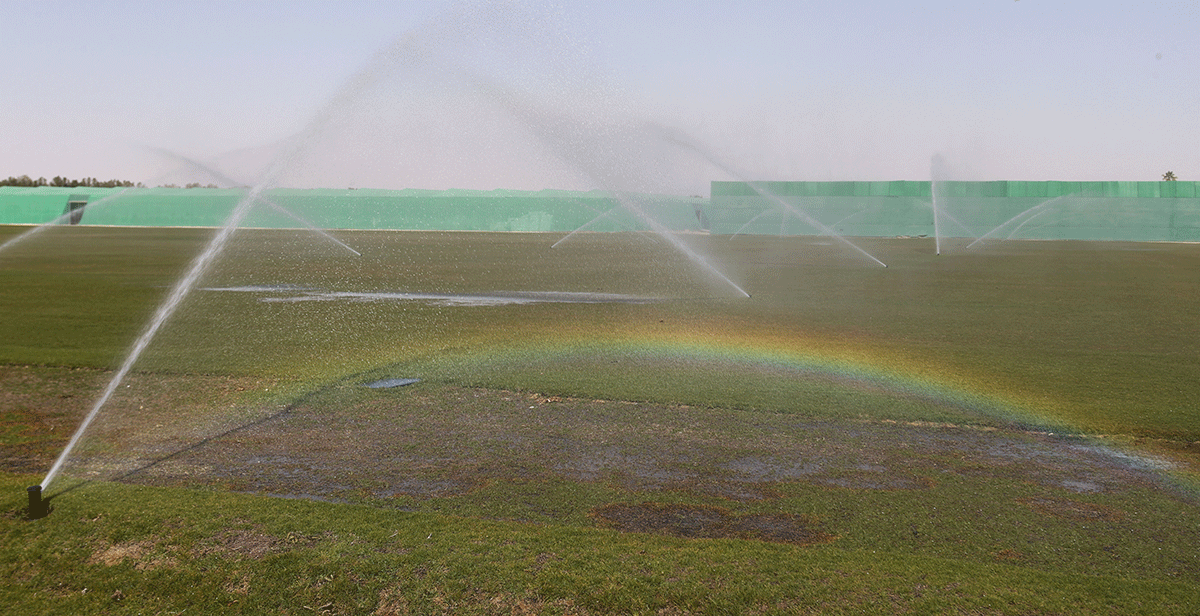
Qatar says it is prepared for any turf emergency.
A 425,000 sq metre reserve of grass – some 40 soccer pitches worth – is growing at a farm north of Doha.
It can be harvested, trucked to a stadium and layered down ready for play in as little as eight hours, said Mohamed Al Atwaan, who worked as a project manager on Stadium 974.
Organisers have declined to say how much the turf programme has cost Qatar, a wealthy gas exporter that spent billions on infrastructure over the last decade to prepare for the event.




